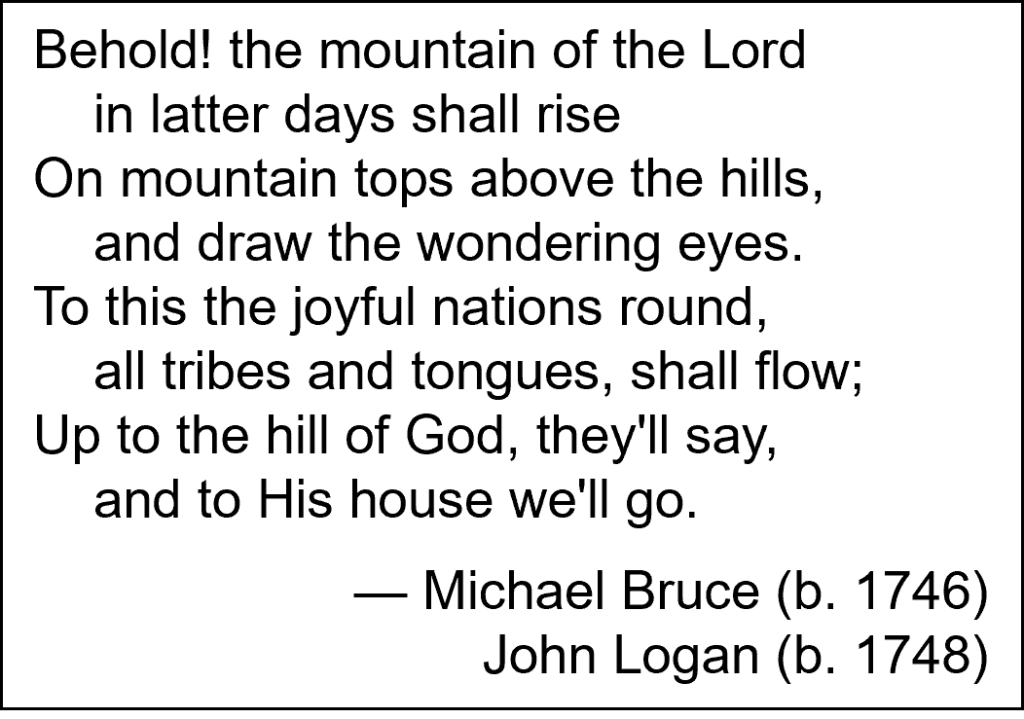
Save or print this page by clicking on “Download” below:
March 10, Sunday
An audio recording of the following reading is available below.
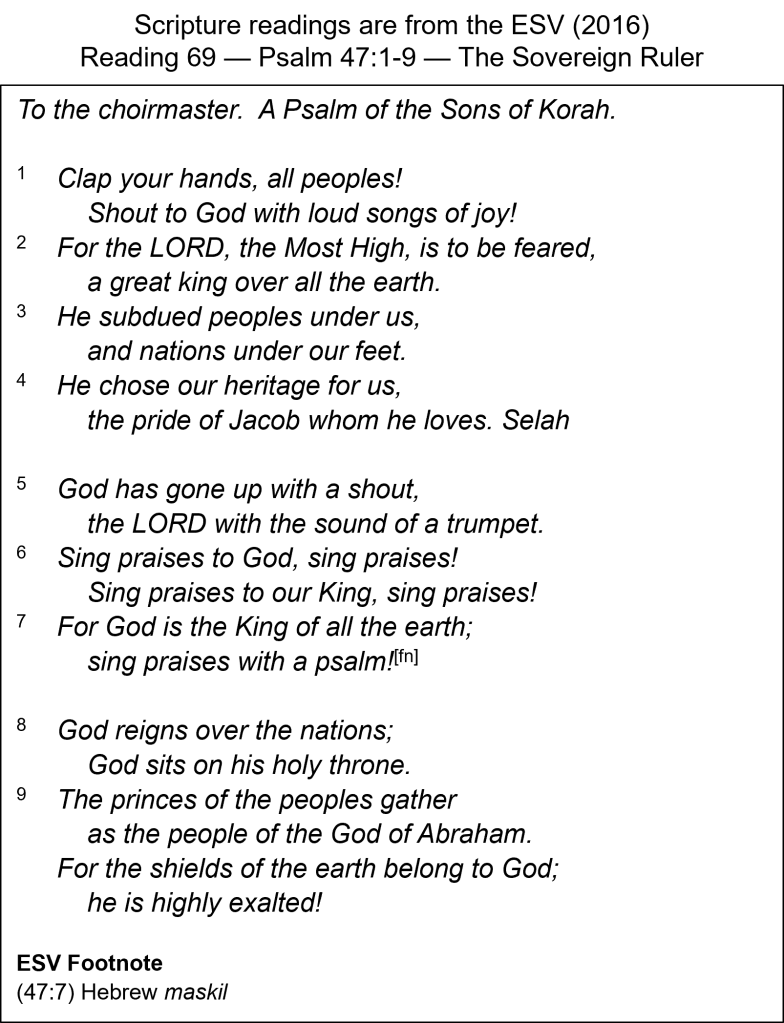
XXX
The Holy Throne — This is a joyous psalm of praise to God, who rules over not only Israel, but universally over “all the earth” (vv. 2, 7, cf. 8, 9). Verse 8 says that “God sits on his holy throne.” That throne was symbolically located above the cherubim in the Most Holy Place of the temple in Jerusalem, but the universal scope of this passage seems to point to the ultimate throne of God in heaven, like David said: “The LORD is in his holy temple; the LORD’s throne is in heaven…” (Psa. 11:4). From that exalted position, God looks down on, and rules over, the whole earth. When His people were obedient, “He subdued peoples under us” (Psa. 47:3), and when they were disobedient, He used surrounding nations to punish them through military defeat. God is sovereign, meaning He is a supreme ruler, guiding nations to accomplish His overall purposes for mankind. The psalm ends appropriately with the conclusion that “he is highly exalted!” (v. 9). He should, then, be exalted by us in praise: “Clap your hands … Shout to God with loud songs of joy!” (v. 1).
All Creatures of Our God and King – YouTube
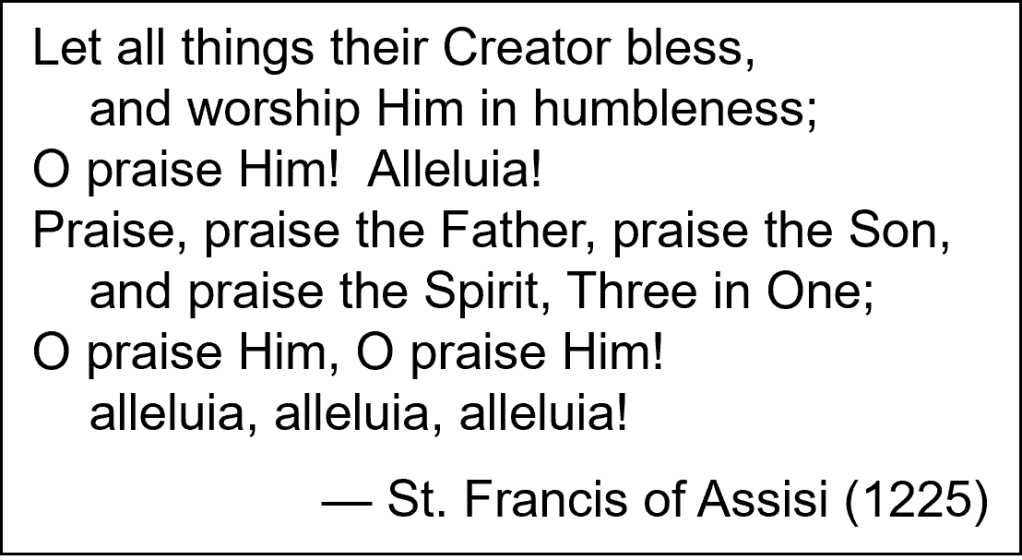
XXX
March 11, Monday
An audio recording of the following reading is available below.

XXX
You Are There! — This wonderful psalm of David emphasizes God’s complete knowledge (omniscience) in verses 1-6 and His universal presence (omnipresence) in verses 7-12. He knows everything and He is everywhere. Verse 7 shows that the Holy Spirit is inescapable; none can go where He is not present, and none can flee from Him. Why would anyone want to flee from Him? I think the answer is mostly because of accountability. God has set a high standard of morality, and the natural man does not want to submit to it. Even Christians occasionally want to escape the watchful eye of the Holy Spirit so they can indulge in an act of sin. We need to develop a constant awareness of the presence of the Spirit wherever we are and whatever we do, which will help deter us from sin. Things we would never do if our pastor were watching, we do while the Spirit is watching because we dismiss Him from our minds. Twice in the next verse, the psalmist says of the Spirit, “you are there!” (v. 8). He is present in heaven, which is expected, but also on earth and in the grave (“in Sheol”). Let the knowledge of His presence motivate you to live in purity and truth!
Earlier verses of this hymn are contained in this video:
God Himself Is with Us – YouTube
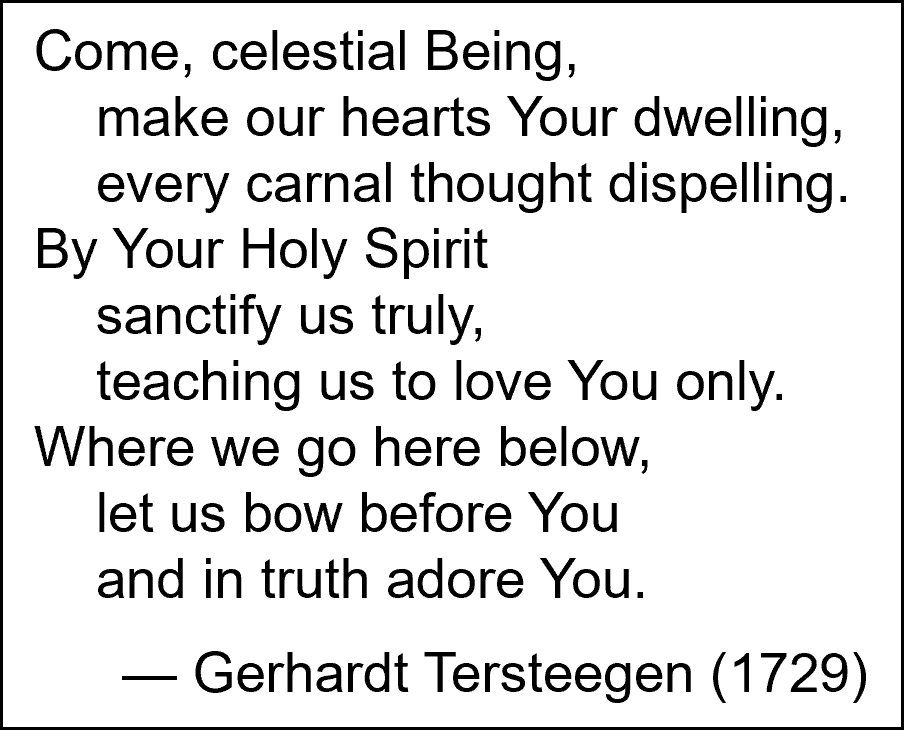
XXX
March 12, Tuesday
An audio recording of the following reading is available below.


XXX
The Good Spirit — The Holy Spirit is called the “good Spirit” only here (v. 10) and in Neh. 9:20, which we read about last week. In today’s reading, His goodness is shown in how He leads us: “Let your good Spirit lead me on level ground!” (v. 10). This rather uncommon Hebrew word for “lead” is also unusual in that it is used in the OT mostly for divine leadership. Moses used it in describing how God led Israel through the wilderness with the cloud by day and the fire by night (Ex. 13:21). He is the Shepherd who “leads me in the paths of righteousness for his name’s sake” (Psa. 23:3). David prayed, “Lead me to the rock that is higher than I” (Psa. 61:2), and later he wrote, “lead me in the way everlasting” (Psa. 139:24). The Holy Spirit is good because He leads us. Sometimes His leading is obvious to us, but it is often seen in subtle ways that are recognized only in hindsight. Notice also in today’s psalm where He leads us, “…on level ground” (Psa. 143:10). He smooths out rough places in our lives that cause confusion and stumbling. Level ground is where we want to be when fighting against our enemy of temptation, and the “good Spirit” enables us to do that.
The original words were slightly altered in this video.
Thy Will Be Done – YouTube

XXX
March 13, Wednesday
An audio recording of the following reading is available below.
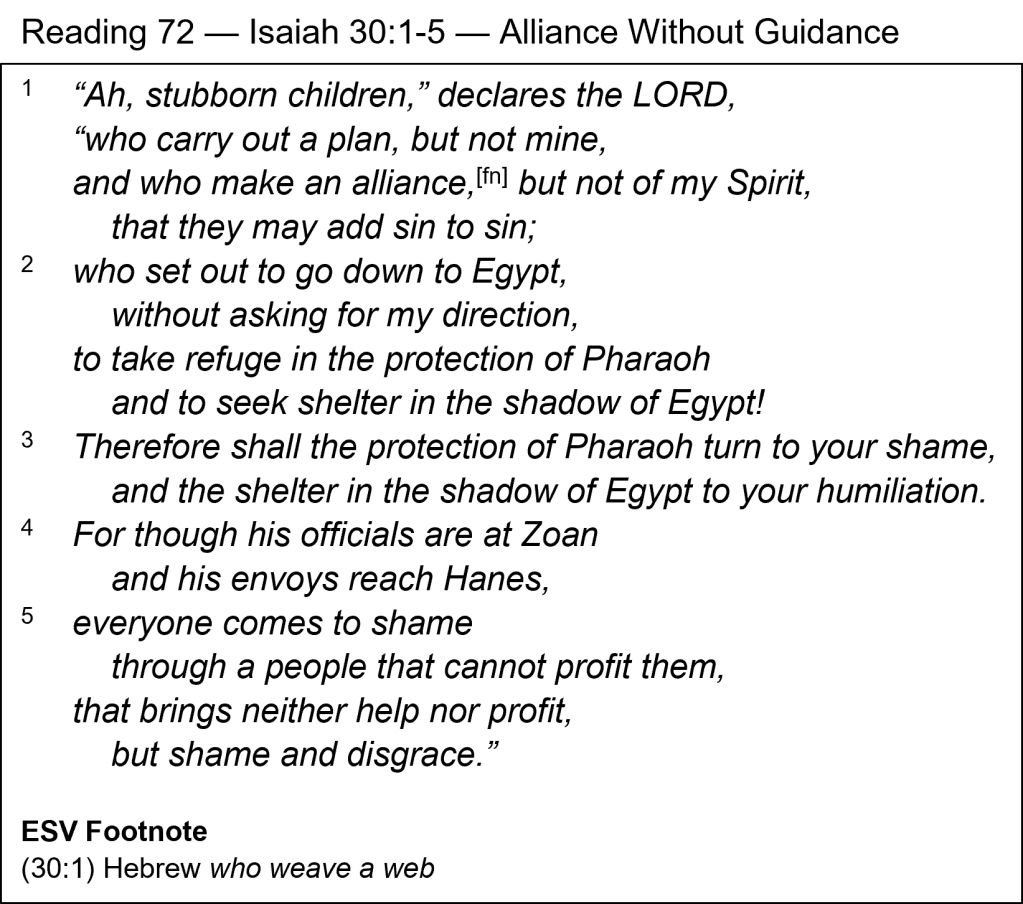
XXX
Seeking the Spirit’s Direction — Judah was being threatened by Assyria from the north, so rather than seeking direction from God’s Holy Spirit, they sent officials to Egypt to buy protection from the nation from which they had escaped slavery centuries before. Even during Moses’ life, many of the Israelites wanted to go back to Egypt for the comfort of familiarity (Num. 11:5). Now, they ran to Egypt for protection. God would later say through Isaiah, “Behold, you are trusting in Egypt, that broken reed of a staff, which will pierce the hand of any man who leans on it. Such is Pharaoh king of Egypt to all who trust in him” (Isa. 36:6). Judah’s error was not only that they didn’t recognize the weakness of Egypt, but that they neglected to seek God’s direction. Similarly, most of us don’t pray nearly enough before making decisions. We need guidance from the Spirit because He sees and knows all, and He loves and cares for us. As Solomon told them and reminds us, “Trust in the LORD with all your heart, and do not lean on your own understanding” (Prov. 3:5).
This hymn is sung in a crowded Anglican church in Nigeria:
Spirit Divine, Attend Our Prayers – YouTube
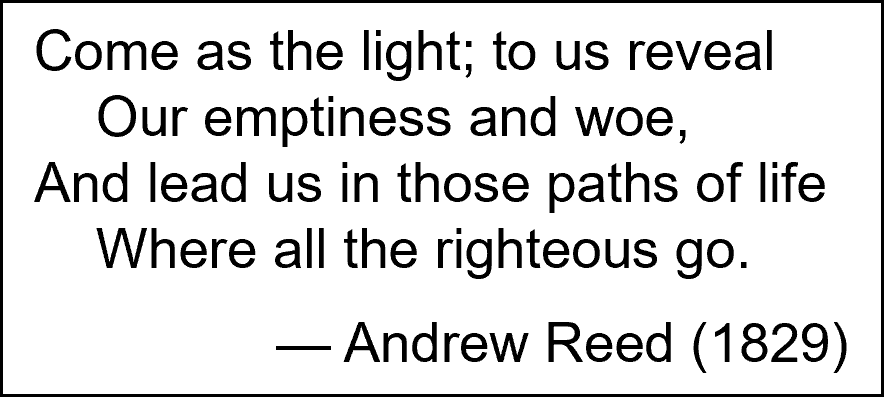
XXX
March 14, Thursday
An audio recording of the following reading is available below.

XXX
The Peace-producing Spirit — The northern kingdom of Israel was only a year away from being punished for their long disobedience. They would be conquered by Assyria from the north and dispersed among other nations. God was warning in this chapter about the coming disaster to a nation of people who were “at ease” and “complacent” (vv. 9-11). There was hope on the horizon, however, when “the Spirit is poured upon us from on high” (v. 15). It was in this part of Israel that the Messiah grew up and ministered. Upon Him and through Him the Holy Spirit was poured out on the people of that land, and it became a spiritually “fruitful field” where justice and righteousness dwelt, producing “peace … quietness and trust forever” (vv. 15-17). The presence of the Holy Spirit makes dramatic changes, bringing internal, quiet peace to the hearts of believers. It is “the peace of God, which surpasses all understanding, [that] will guard your hearts and your minds in Christ Jesus” (Phil. 4:7).
Peace, Wonderful Peace – YouTube

XXX
March 15, Friday
An audio recording of the following reading is available below.
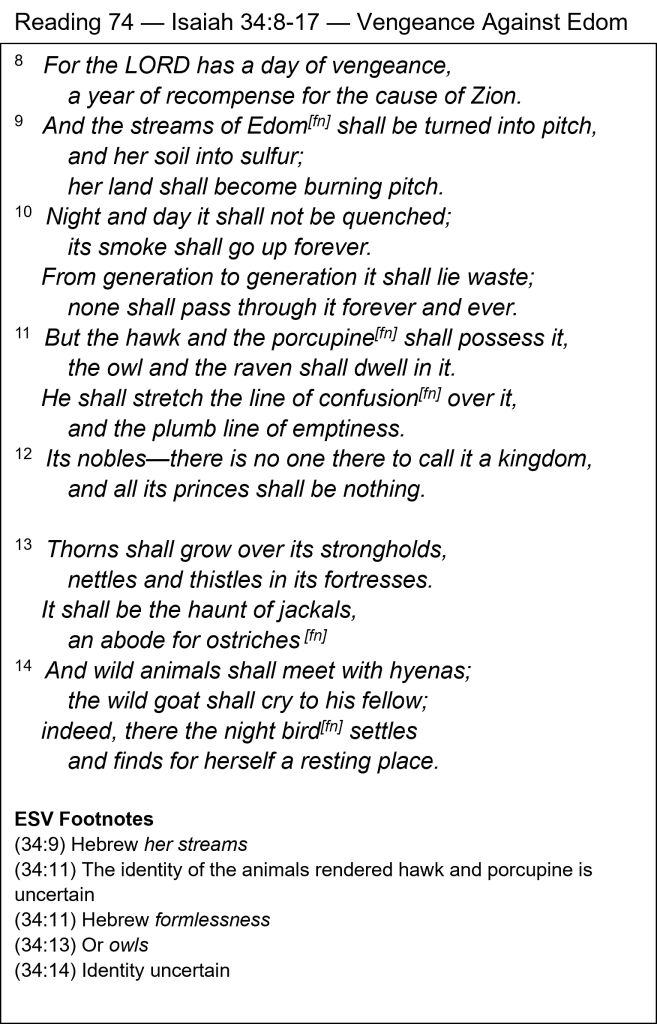

XXX
The Gathering Spirit — At the beginning of this chapter, God indicates His anger against “all the nations” (v. 2), and in our reading for today, He centers on Edom as a representative of those nations. Devastating judgment was coming, which would leave their abandoned land fit only for weeds and wild animals. It is in this context of gathering the wild animals that the Holy Spirit is mentioned, saying, “…and his Spirit has gathered them” (v. 16). This is interesting for several reasons. Near the end of January, we read that the Spirit was involved in Creation, where “the Spirit of God was hovering over the face of the waters” (Gen. 1:2). In that same verse, it said that the earth was “without form and void…,” using the same two Hebrew words that are translated “confusion … and … emptiness” in verse 11 of today’s reading. The condition of the world before Creation would be like how the land of Edom would be left following its judgment. Another similarity is the gathering of animals by the Spirit in verse 16, compared to the miraculous gathering of all the pairs of animals to Noah’s ark. It is also like what will happen at the Second Coming, when the Son of Man “will send out his angels with a loud trumpet call, and they will gather his elect from the four winds, from one end of heaven to the other” (Matt. 24:31). The Holy Spirit continues to gather into the Church those who come to Christ in faith, and He gathers us believers together in local churches around the world. He is the gathering Spirit.

XXX
March 16, Saturday
An audio recording of the following reading is available below.


XXX
His Holy Mountain — Verse 2 of this psalm says that “His holy mountain, beautiful in elevation, is the joy of all the earth...” Select mountains in Scripture play a special holy role in God’s connection with mankind. We see it first when God appeared to Moses at the foot of “the mountain of God” (Ex. 3:1), later called Mount Sinai (Ex. 19:11). It was to this mountain that God led Israel after parting the Red Sea, and there He dramatically gave the Ten Commandments to Moses (Ex. 19:18; 24:12). It was God’s presence that made that mountain holy. It is interesting that in the 18 places where the expression “holy mountain” is mentioned in Scripture, in 13 of them it is “my…” or “his holy mountain”: It was His presence that made it holy. In the Song of Moses, the prediction was made about another special holy mountain in the Promised Land: “You will bring them in and plant them on your own mountain, the place, O LORD, which you have made for your abode, the sanctuary” (Ex. 15:17). That was Mount Zion in Judah, the location of the later city of Jerusalem. In the same way that God demonstrated his presence at Mount Sinai, He displayed His glory on Mount Zion at the completion of the construction of Solomon’s temple (2 Chron. 7:1-2). One more dramatic mountain top demonstration will occur in the future, according to the vision of John: “Then I looked, and behold, on Mount Zion stood the Lamb, and with him 144,000 who had his name and his Father’s name written on their foreheads. And I heard a voice from heaven like the roar of many waters and like the sound of loud thunder. The voice I heard was like the sound of harpists playing on their harps, and they were singing a new song before the throne and before the four living creatures and before the elders.” (Rev. 14:1-3).
Behold the Mountain of the Lord – YouTube
